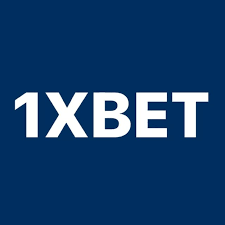The Future of Play-to-Earn Gambling in Web3 30

The Future of Play-to-Earn Gambling in Web3
The evolution of technology has always intertwined with the world of gambling, evolving from traditional brick-and-mortar establishments to online casinos and now transitioning into the realms of Web3. The decentralization of the internet, or Web3, introduces a unique frontier where play-to-earn (P2E) models are becoming increasingly popular. This article explores the future of play-to-earn gambling in Web3, focusing on its characteristics, benefits, challenges, and the industry’s long-term outlook. In this rapidly changing landscape, players can now engage in games that not only offer fun but also financial opportunities, akin to The Future of Play-to-Earn Gambling in Web3 best RTP slots but with a twist of ownership and investment.
Understanding Play-to-Earn Models
Play-to-earn models empower players to earn real-world value from their in-game activities. Unlike traditional gambling where players wager money for the chance to win, P2E allows players to accumulate cryptocurrencies or non-fungible tokens (NFTs) as they play. This model incentivizes players to engage more deeply with the games since their efforts can yield tangible rewards. The introduction of NFT technology enables players to truly own their in-game assets, putting them in control and allowing for trading or selling these assets in various online marketplaces.
Web3 and Its Implications for Gambling
The transition from Web2 to Web3 signifies a significant paradigm shift in how users interact with digital environments. In the context of gambling, this means moving away from centralized platforms toward decentralized applications (dApps) that operate on blockchain technology. Here are some key implications:
Decentralization
With decentralized platforms, players do not have to rely on a central authority, reducing the risk of manipulation and fraud. Smart contracts–self-executing contracts with the agreement between buyer and seller directly written into lines of code–ensure transparency and fairness. Players can trust that games operate according to set rules without interference from a central entity.
Enhanced Security and Privacy
Blockchain’s inherent properties provide enhanced security and anonymity for users. Players can engage in transactions without exposing sensitive personal information. This is particularly appealing in the gambling sector, where privacy can often be a concern.
Ownership of Assets
In traditional gambling, players have no ownership claim over their money or winnings once placed on a platform. In contrast, P2E gambling allows players to own their tokens and assets directly. This ownership translates to a more profound engagement with the game, as players can influence its economy through their actions.
Benefits of Play-to-Earn Gambling

As the P2E model integrates with gambling, several benefits emerge:
Financial Opportunities
P2E gambling provides players with opportunities to earn while they play, turning leisure into potential profit. This financial incentive can attract a broader audience, including those who may not typically engage with traditional gambling.
Community and Ecosystem Development
Many P2E games thrive on community engagement. Players become more invested not only in their gameplay but also in the game’s development, often participating in governance decisions through token ownership. This sense of belonging can enhance player loyalty and long-term participation.
Diversity of Games
The blockchain gaming landscape is vast and diverse. Players can access a myriad of games, ranging from traditional casino games to innovative RPGs (role-playing games) and strategy games. This variety allows players to choose how they want to engage and earn.
Challenges and Considerations
Despite its many advantages, the P2E gambling model faces several challenges that must be considered:
Regulatory Concerns
The gambling industry is heavily regulated, and the integration of cryptocurrency and P2E models adds layers of complexity. Different jurisdictions have unique laws regarding online gambling, and navigating these regulations can be challenging for developers and players alike.
Market Volatility

The cryptocurrency market is known for its volatility. The value of in-game tokens can fluctuate dramatically, which might lead to significant earnings one day and losses the next. This uncertainty can deter casual players who may not wish to gamble with digital assets.
Game Quality and Sustainability
As the market expands, ensuring the quality and sustainability of games is crucial. Low-quality games can lead to dissatisfaction and a decline in player engagement. Developers must strike a balance between creating engaging content and maintaining rewarding economic models.
The Future Landscape of Play-to-Earn Gambling in Web3
Looking forward, the play-to-earn gambling landscape in Web3 is poised for growth and innovation. Here are some trends we might expect:
Integration with Traditional Gambling Platforms
As P2E models prove their worth, traditional gambling platforms may begin to integrate these features. This blend of traditional and digital could broaden the appeal and accessibility of gambling, attracting a diverse audience.
Development of Virtual Reality Casinos
With advances in VR technology, virtual reality casinos that incorporate P2E principles could revolutionize the gambling experience. Players could immerse themselves in realistic settings while playing and earning.
Enhanced Interoperability
As the blockchain ecosystem matures, greater interoperability among different games and platforms could emerge. Players might transfer assets from one game to another, enhancing their overall gaming experience and value.
Conclusion
The future of play-to-earn gambling within the Web3 ecosystem is full of possibilities. As this sector continues to develop, it will be imperative to navigate the challenges while maximizing the opportunities that arise. If done correctly, the integration of P2E models with online gambling could promote a fairer, more engaging, and financially rewarding environment for players globally. The continued evolution of technology, player engagement, and regulatory frameworks will shape this vibrant landscape, ushering in a new era of digital gambling.